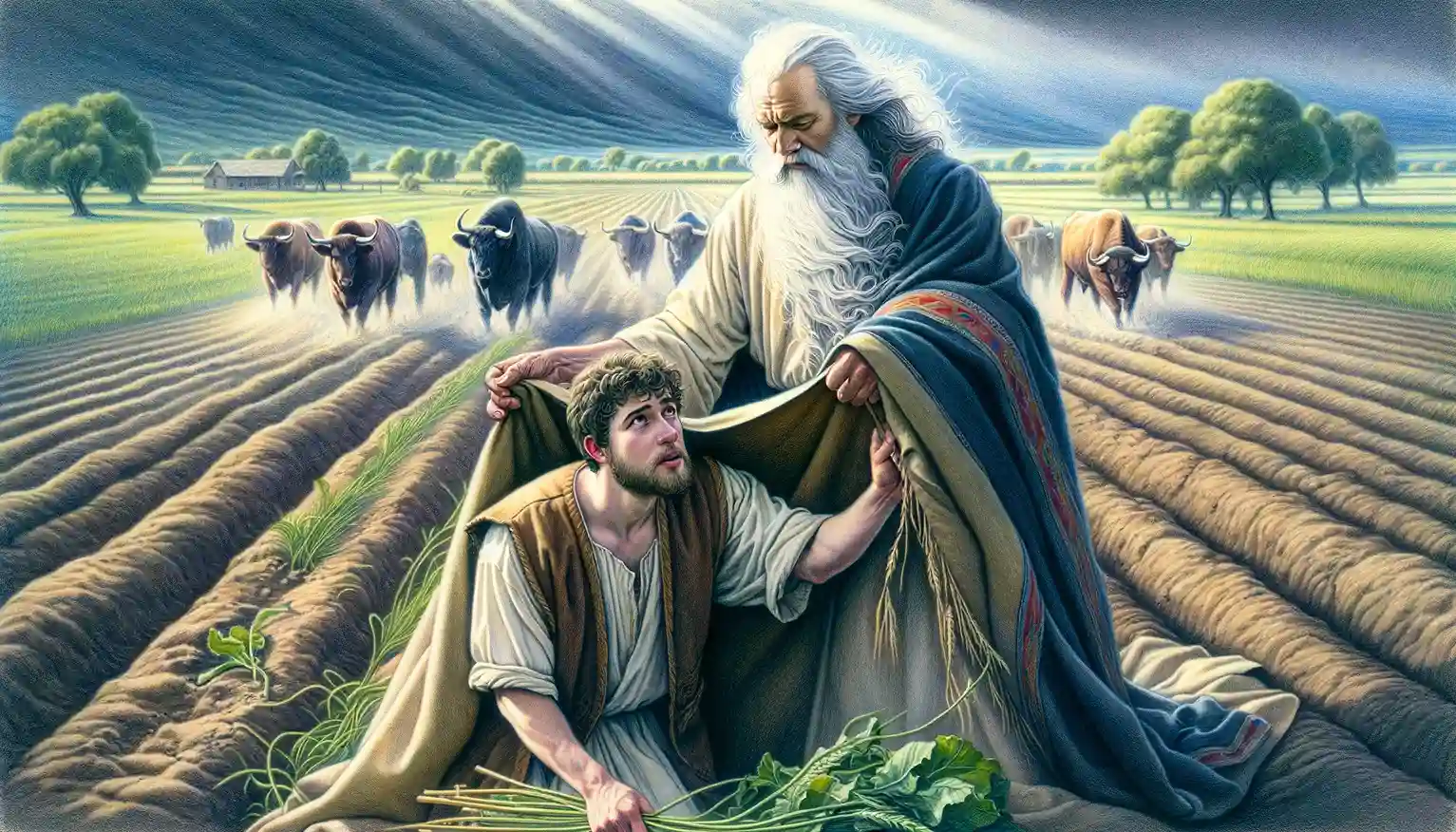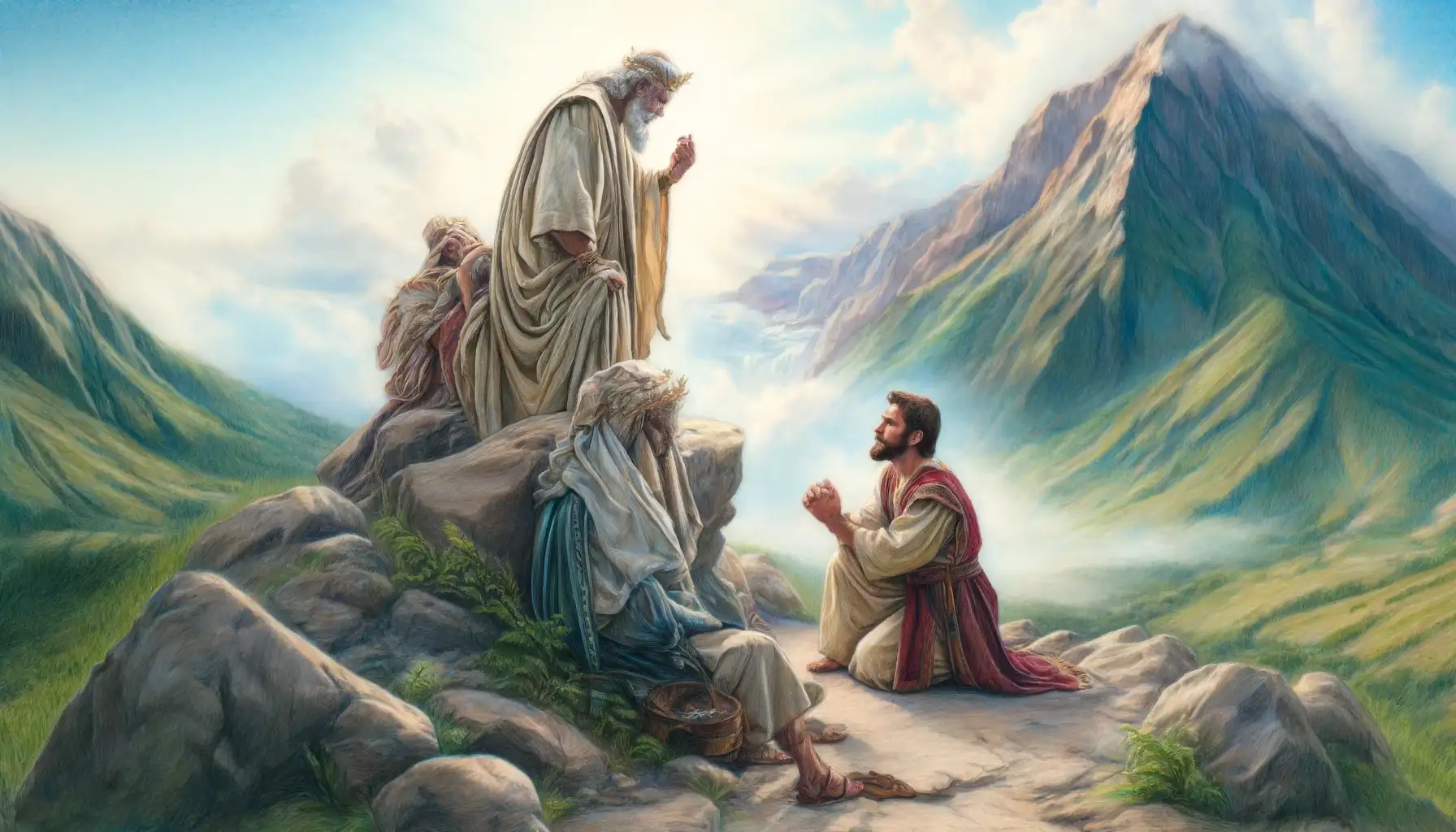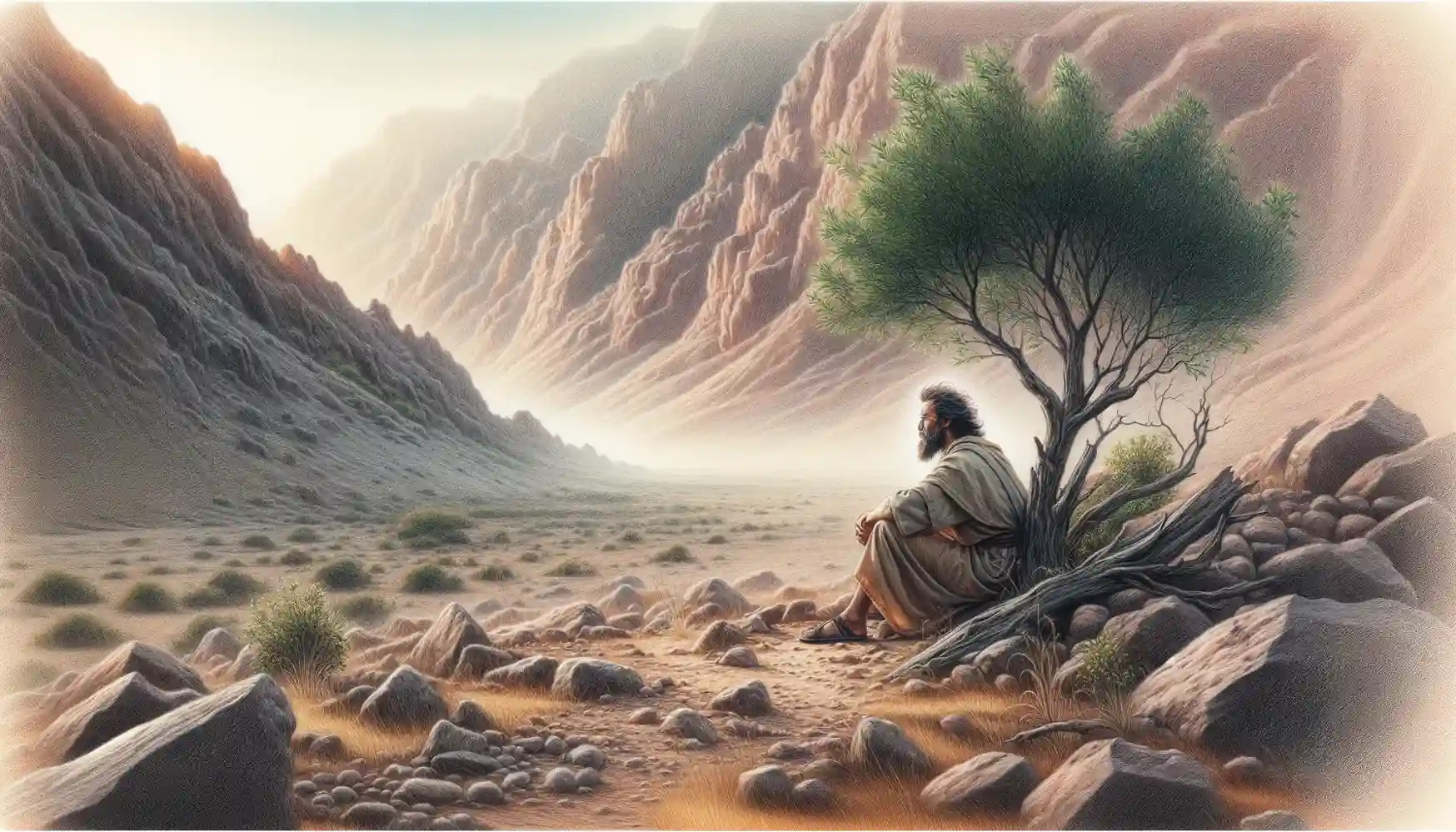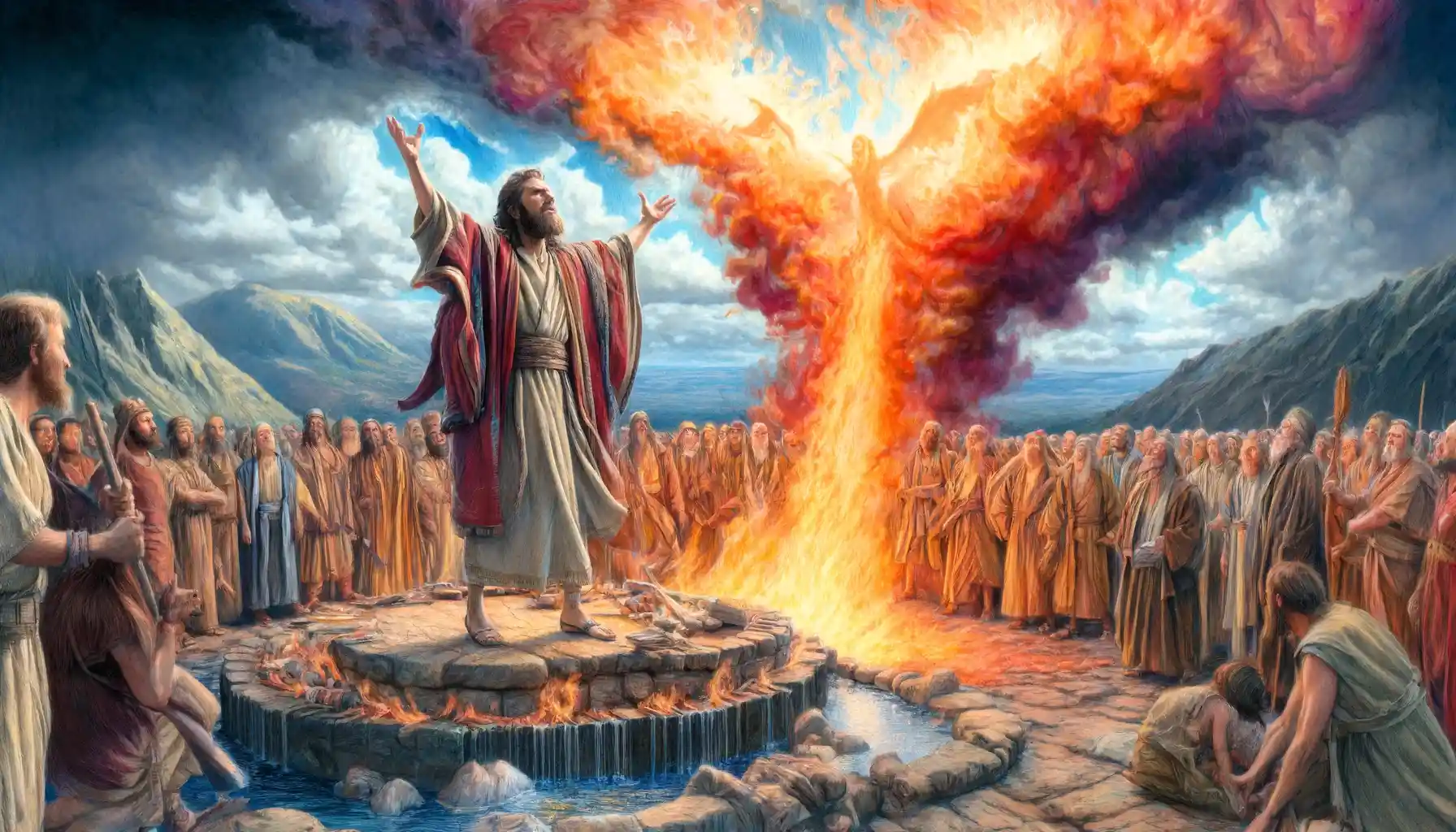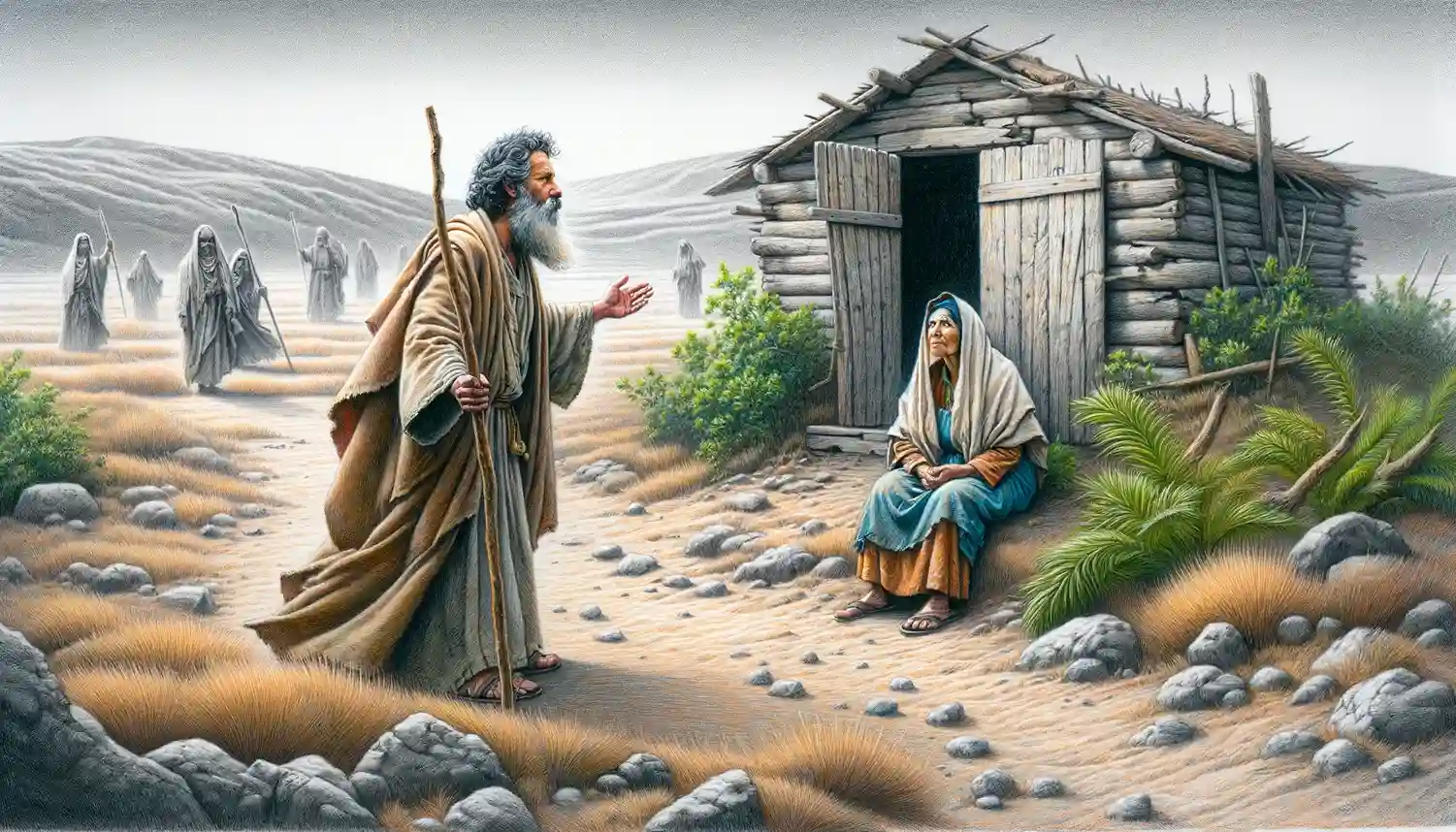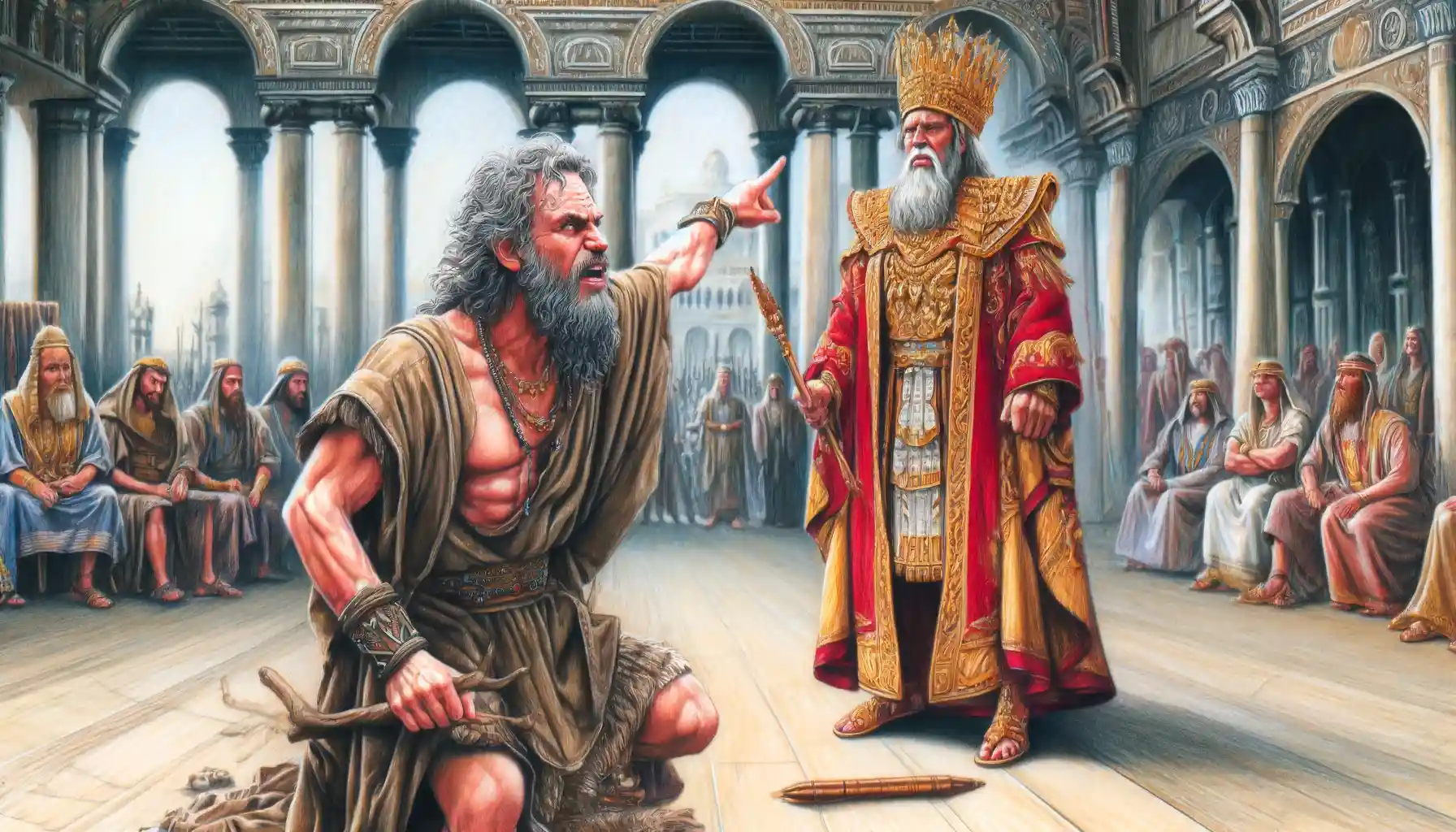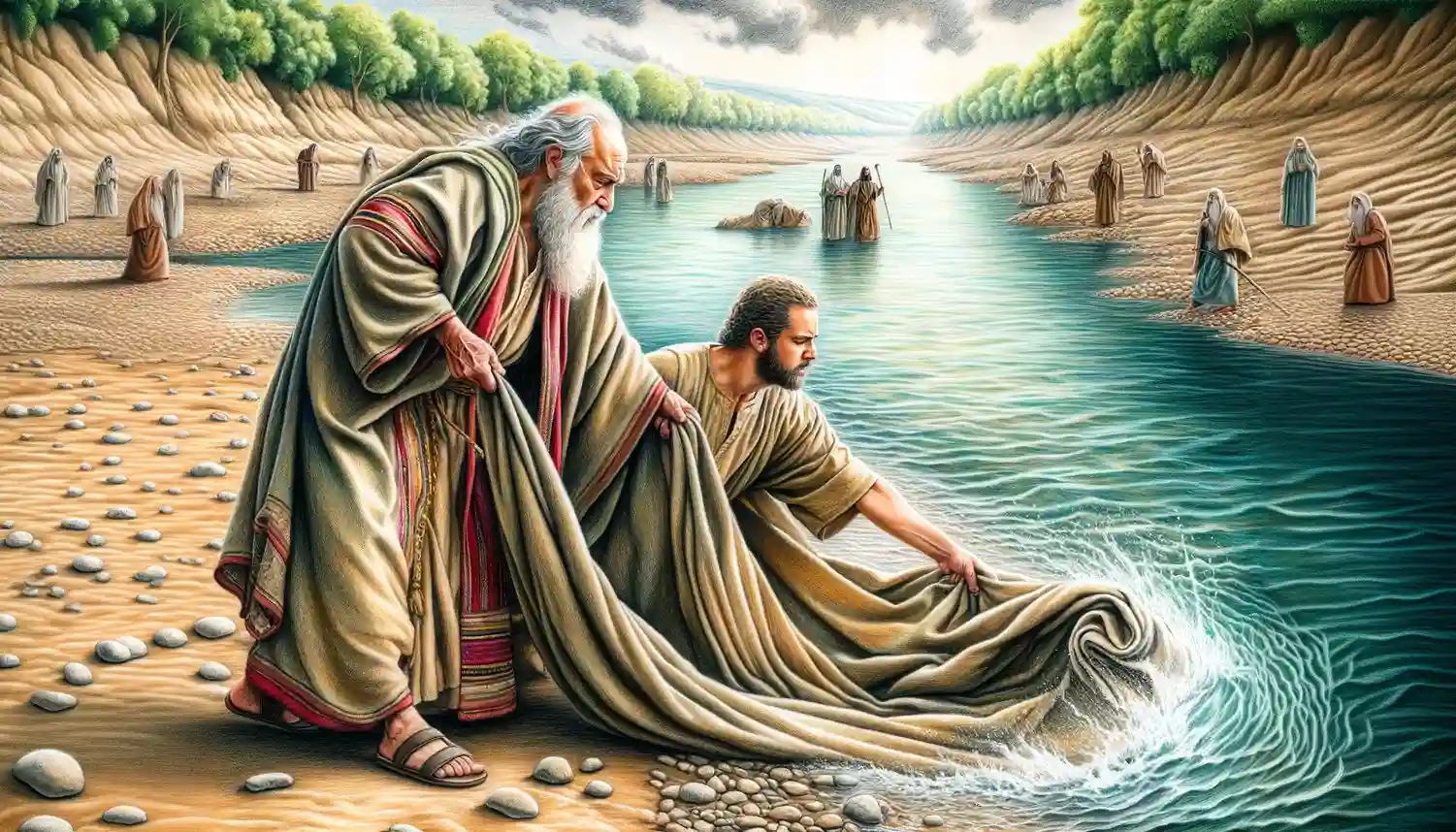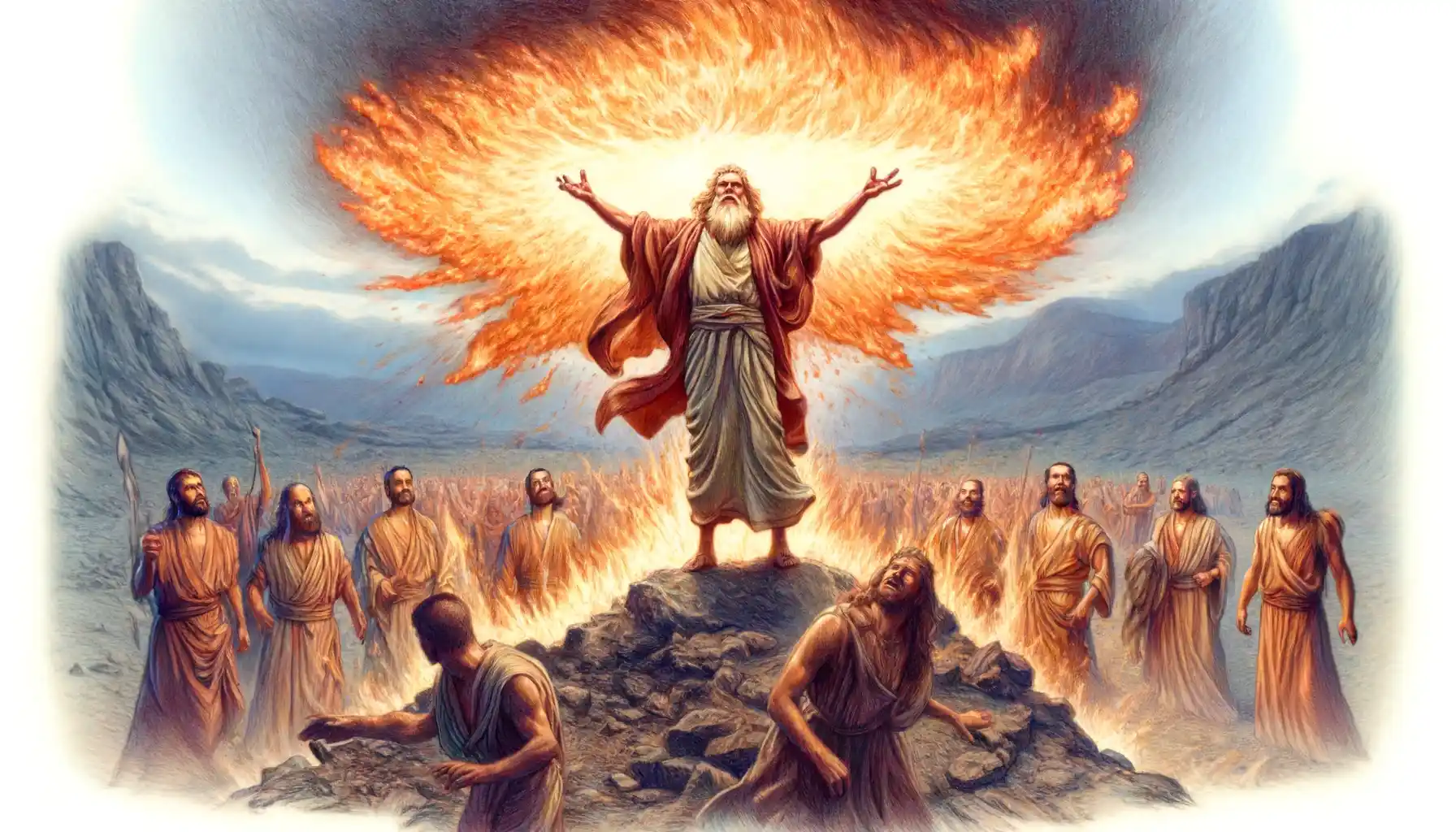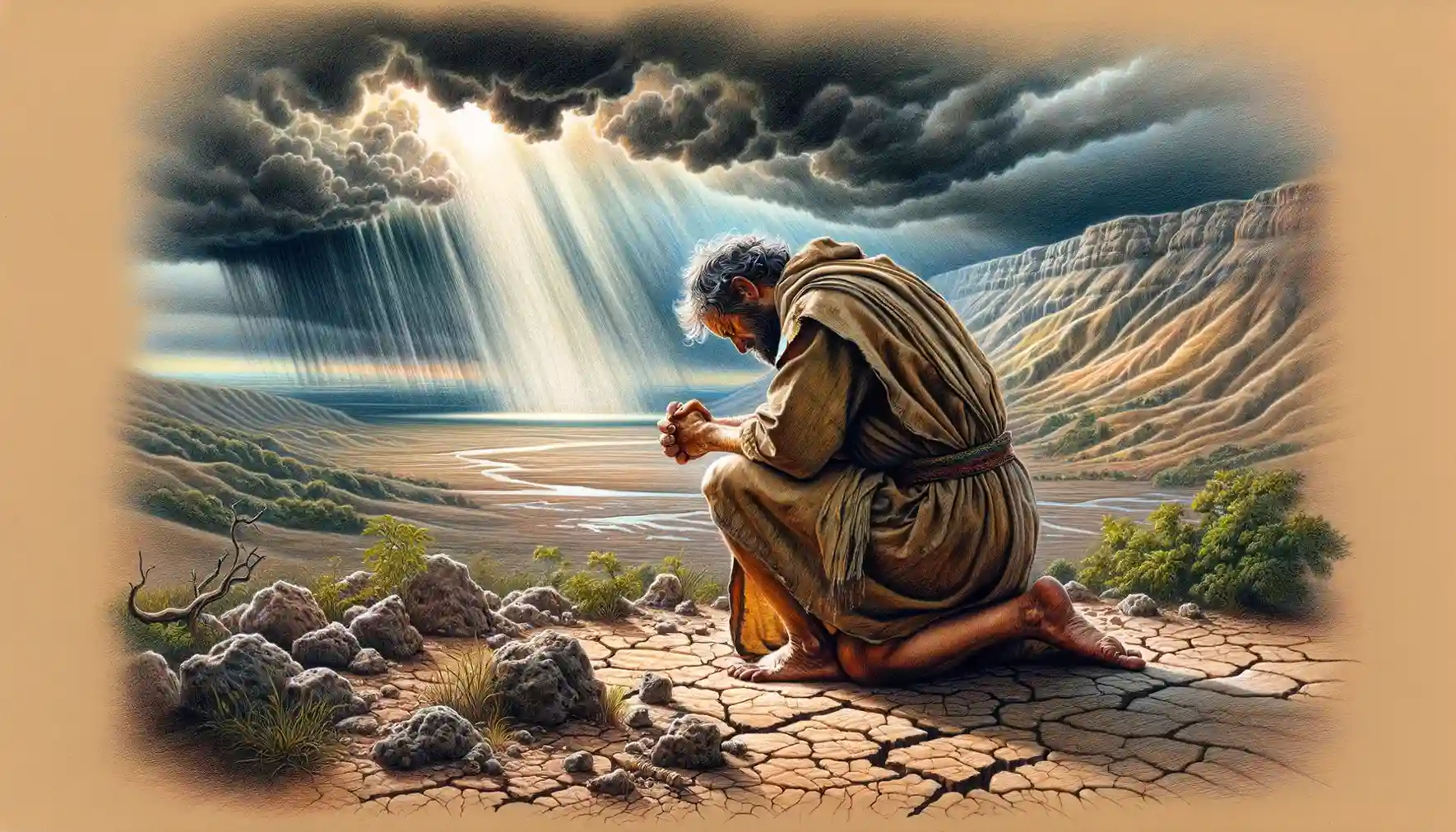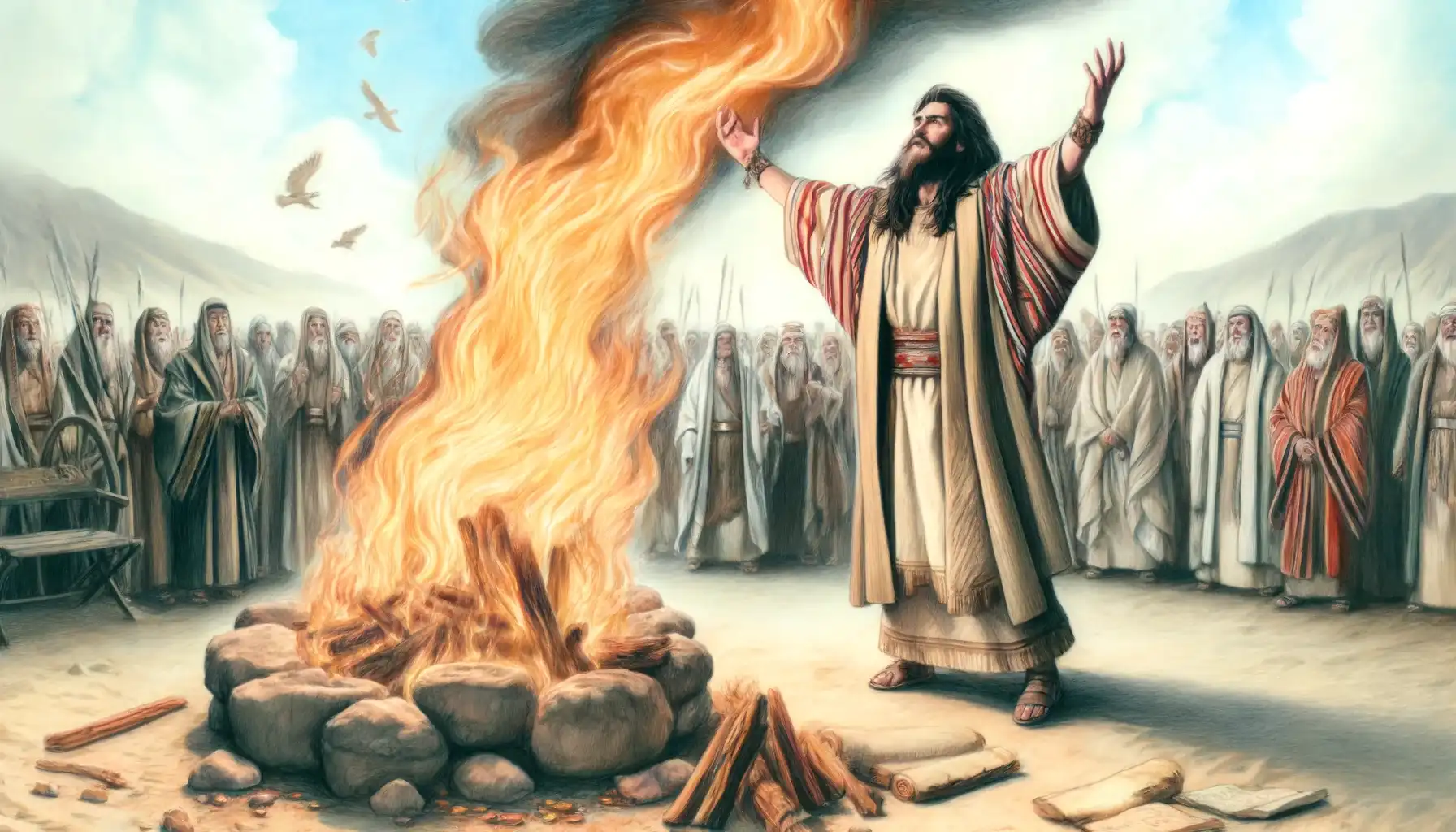In 1 Kings 19:19-21, Elijah, following divine instructions, calls Elisha to succeed him by placing his mantle on him while he is plowing in the fields, a gesture that Elisha responds to by sacrificing his oxen and burning his plowing equipment, symbolizing his total commitment to the prophetic mission and marking a pivotal transition in the continuity of prophetic leadership in Israel.
In 1 Kings 19:15-17, God instructs Elijah to anoint Hazael as king over Aram and Jehu as king over Israel, marking a strategic shift in divine intervention from miraculous displays to political maneuvers, thereby setting the stage for significant political upheavals that shape the future course of both nations through divine judgment and the fulfillment of prophetic declarations.
After his dramatic victory on Mount Carmel, Elijah flees to Mount Horeb to escape Jezebel’s wrath, where, in a stark contrast to the fire from heaven, he encounters God in a “still small voice,” reflecting a deep personal crisis and a pivotal moment of divine reassurance and guidance for continuing his prophetic mission, as detailed in 1 Kings 19:1-18.
The confrontation on Mount Carmel, as depicted in 1 Kings 18:20-40, showcases a dramatic contest orchestrated by the prophet Elijah to demonstrate Yahweh’s supremacy over the Canaanite gods Baal and Asherah, resulting in a divine fire consuming the drenched sacrifice and leading to the mass conversion of Israel back to the worship of Yahweh, reaffirming Elijah’s prophetic authority and God’s unmatched power.
Elijah’s flight to Zarephath in 1 Kings 17:3-9, following his prophetic confrontation with King Ahab, illustrates a critical juncture where God directs Elijah to a place outside Israel, demonstrating divine providence and protection, and highlights the extension of God’s grace and provision through a sustained miracle involving a widow’s endless supply of flour and oil, affirming the universality of God’s care beyond ethnic and national boundaries.
In 1 Kings 17:1, Elijah suddenly appears to challenge King Ahab, announcing a severe drought as divine retribution for Israel’s idolatry, directly confronting the worship of Baal and asserting the supremacy and authority of Yahweh through a bold prophetic declaration.
The Parting of the Jordan River by Elijah, described in 2 Kings 2:8, marks a crucial moment in biblical narrative, where Elijah, using his cloak, miraculously parts the waters, allowing himself and his successor Elisha to cross on dry ground, symbolizing the transition of prophetic authority and demonstrating God’s enduring support for His prophets.
In 2 Kings 1:10-12, the prophet Elijah calls down fire from heaven to consume two groups of fifty soldiers sent by King Ahaziah to apprehend him, dramatically illustrating God’s supreme power and authority, and serving as a divine rebuke against the king’s idolatry and challenge to prophetic authority.
The account of Elijah praying for rain after a three-year drought, as depicted in 1 Kings 18:41-45, vividly demonstrates God’s sovereignty over natural phenomena and underscores the efficacy of faithful prayer, showing how God responded to Elijah’s earnest intercession by ending the severe drought with a significant rainfall, thereby affirming His supremacy over the idolatrous worship of Baal.
In the dramatic episode on Mount Carmel, as detailed in 1 Kings 18:36-38, Elijah calls down fire from heaven to consume a water-drenched sacrificial offering, decisively demonstrating Yahweh’s supremacy over Baal and significantly impacting Israel’s religious landscape by reaffirming monotheistic worship and the authority of God’s prophetic messenger.

